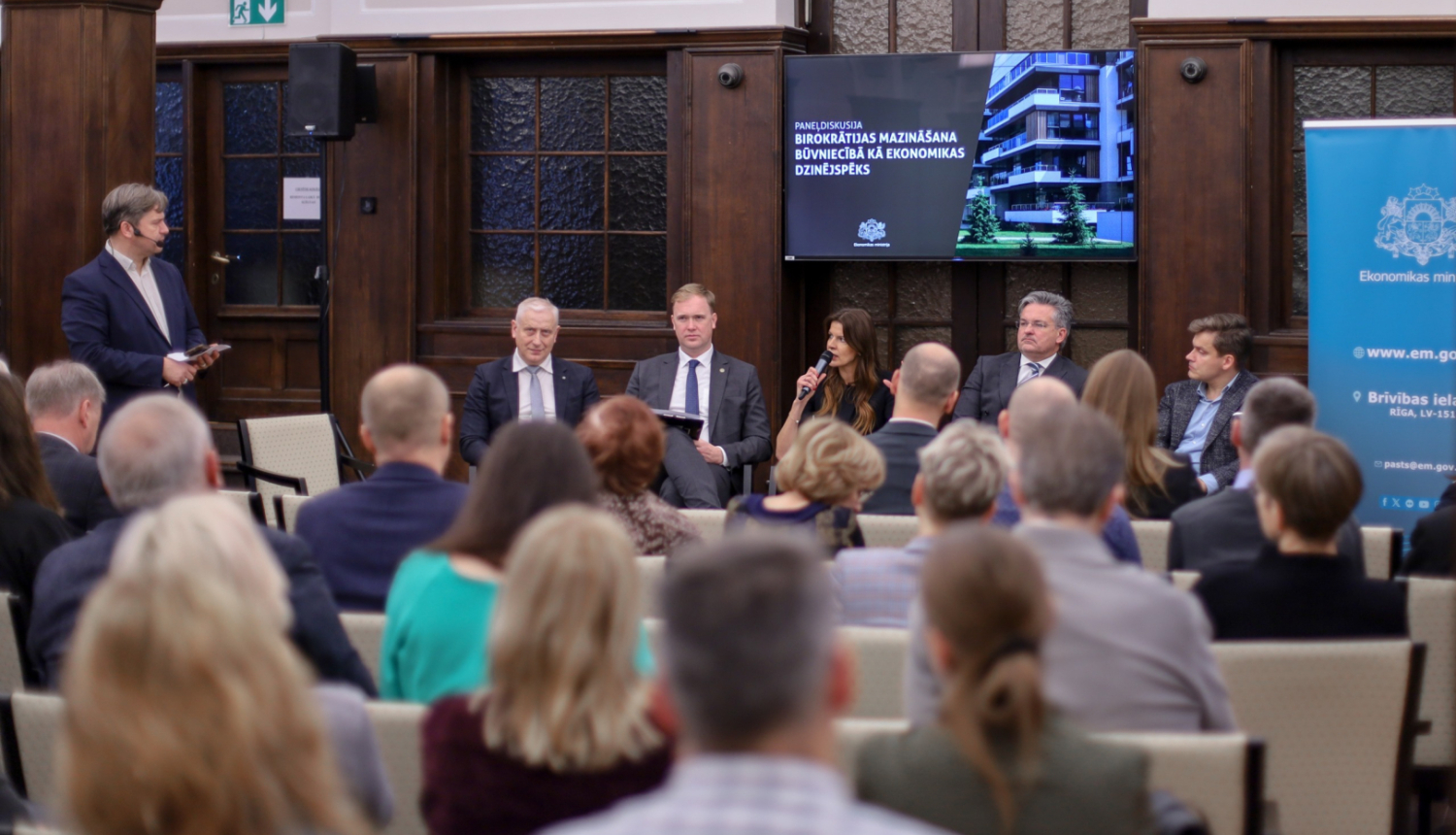Translated using ChatGPT.
At the conference titled "Reducing Bureaucracy in Construction as a Driver of Economic Growth: Achievements and Challenges in the Industry" held on December 19 this year, discussions continued with representatives from the construction and real estate sectors, non-governmental organizations, as well as state and municipal institutions. The focus was on reducing administrative burdens in construction, reviewing what has been accomplished so far, addressing future challenges, changes in legislation, their practical implementation, and the role and perspective of municipalities. Additionally, the question was raised: are legislative changes sufficient to ensure an efficient construction process?
This year, significant progress has been made in reducing bureaucratic burdens—several building regulations have been amended to simplify the construction process. At the same time, the Minister invited industry representatives to submit additional proposals for further necessary changes. "The state must trust its people more. Unfortunately, the prevailing mindset today is, 'as long as the paperwork is in order.' Our goal is to shift this mentality so that the bureaucracy focuses on the question: 'How can this be accomplished?'" emphasized the Minister of Economics, Viktors Valainis.
During the conference, industry representatives praised the nearly 60 actions included in the plan approved by the government in April this year to reduce administrative burdens in real estate development, as well as the regulatory changes already implemented.
Entrepreneurs operating in broader markets noted that Latvia's digitalized construction process is a significant step ahead of neighboring countries, making the process much easier and faster. However, conference participants stressed that regulatory development must be guided by a clear goal: will it promote increased investments in the sector, boost business activity, drive export growth, and contribute to overall industry development? How can local capital investments in the sector be encouraged? Are the costs of bureaucracy proportional to the benefits?
At the same time, entrepreneurs highlighted that while administrative burdens are being reduced in Latvian legislation, the implementation of European Union policies often introduces new challenges. In some cases, regulations are fundamentally clear and simple, but the varying interpretations and approaches of institutions and municipalities complicate their application in practice.
Currently, an intensive dialogue with the industry has identified the most pressing issues in real estate development processes. The Ministry of Economics will closely monitor the implementation of the action plan and the practical application of the adopted regulations. Industry representatives are also encouraged to submit proposals for additional solutions to improve regulations and streamline practices.




